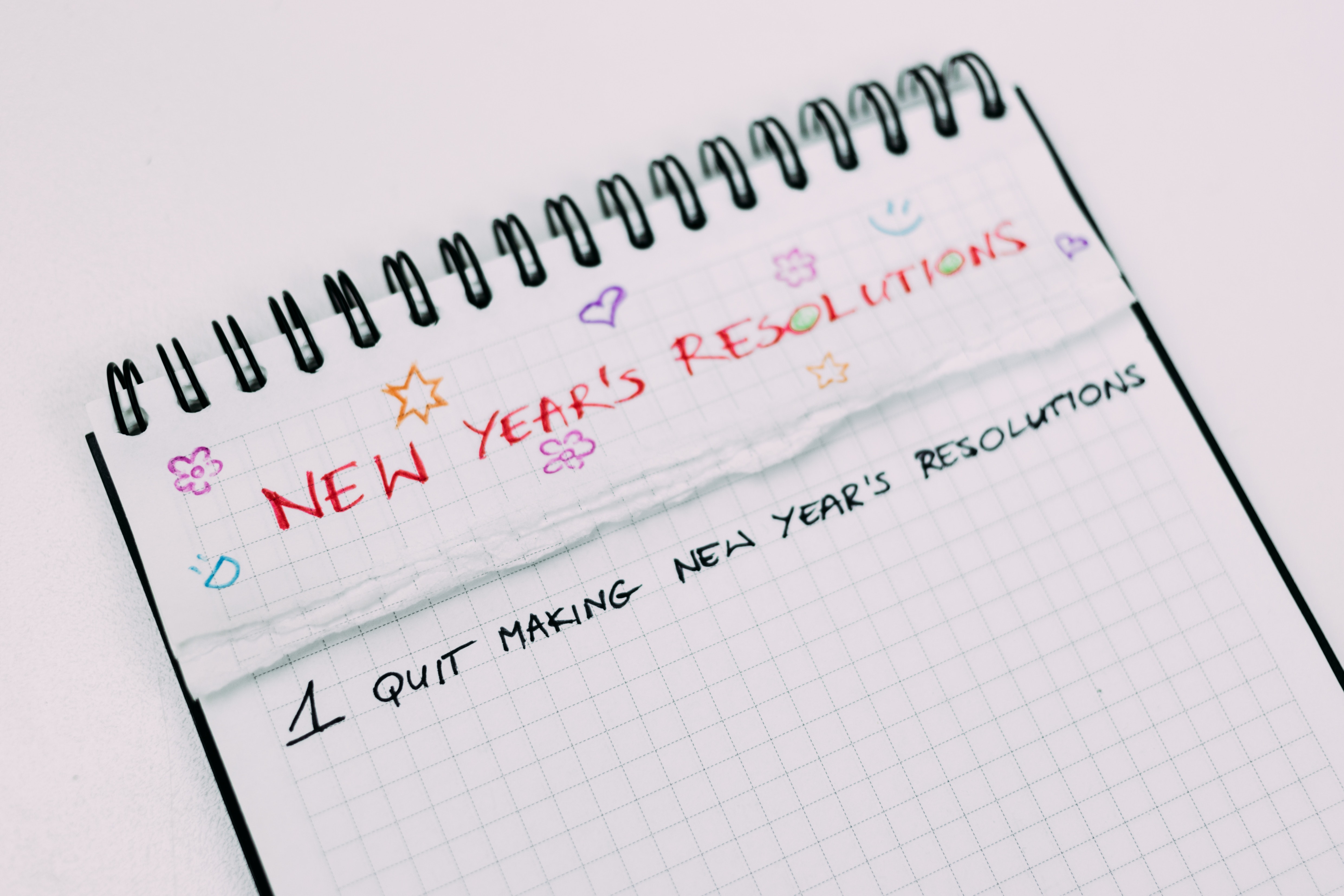
Funnily enough, the majority of people that make New Year’s resolutions don’t stay resolute. According to Forbes, 80% of people give up on their New Year’s resolutions by February on any given year.
If you’re struggling with limited learning or mobility, these resolutions may feel even more unrealistic.
It’s clear such a concept doesn’t work in practice. That doesn’t mean you shouldn’t have a plan to improve or goals to achieve. Though the keywords here are “plans” and “goals”.
Why New Year’s Resolutions Don’t Work
Is it really a resolution if the person making it is just having wishful thinking? Thinking that you ought to “be happier” or “improve your fitness” is a great desire, yet it’s also vague and unactionable.
Vague desires struggle to become real goals because it ignores a fundamental question: How?
To answer the how, a plan is necessary. Hashing out the details is even more crucial if there are challenges with, for example, physically moving about.
Your big goals must be meaningful, yet realistic. Even with physical limitations, that alone can’t stop you from achieving greater fitness than your more abled friends. Likewise, you can make great intellectual strides or be more socially adaptable despite a learning disability.
Having a proper plan means taking into account both your capabilities and limitations, so that you don’t accidentally bite off more than you can chew.
But most importantly, you need both discipline and consistency. Discipline gets you started on achieving a goal, but consistency lets you finish it in spite of the challenges.
With this in mind, here are some tips for planning out big goals for this year and beyond:
Your Goals MUST Be Well-Defined
Vagueness has no place in a truly effective plan. Simply wishing to be happier this year has no direction, no clarity. What makes you happy?
Perhaps you find yourself having the greatest joy during social interactions. In that case, you could set goals like “plan group outings twice a month” and “sign up on social apps and make at least one new online friend every month”.
Focus on what you need to DO to achieve your goals and not just the goal itself. The journey is just as important as the destination.
Tackle Potential Problems At Its Source
A defined plan needs to address the potential for failure. Be honest with yourself. If you want to plan more outings and meet new people, what could realistically stop you from doing it?
Take any and all likely constraints into consideration. If you’re a wheelchair user and travel is difficult, you could instead plan small house parties instead of group outings.
Or maybe you love to be social, but have some difficulties with learning social cues. Scheduling assistance from a professional therapist could be one way to solve this. You could also ask a friend to accompany you for outings to meet an unfamiliar crowd.
In other words, you want to identify, then rectify.
Scoring Big Goals Require Smarts and Strategy
Big goals are made from piling up a mountain of smaller, perhaps even bite-sized goals.
Achieving daily goals puts you closer to hitting your weekly goals, which in turn builds up toward a monthly goal. By tackling it in stages, your ultimate year-end benchmark will naturally feel far less overwhelming to reach.
You may want to get a daily planner or scrawl plans into a calendar religiously. Writing or typing your plans out will not only enforce the needed discipline, it will mentally condition yourself into taking action.
If note-taking proves challenging, you can ask a friend or enlist professional assistance to plan out actionable goals.
Make Good On Your Good Habits
Consistency is absolutely crucial. This can even extend to activities that don’t seem directly related to your main goal.
You might think that correcting your sleep pattern, for example, doesn’t do anything to achieve greater happiness through improving your social interactions.
Yet countless studies show that good sleep means you’re more energized, alert and less prone to mood swings. A more refreshed version of you is likely to be wittier, more confident and more engaged during social situations.
Take note of the good habits you can realistically adopt, then figure out if there’s anything you require to help you keep it up. Perhaps all you need is a loud enough alarm or skipping out on nighttime coffee. Maybe you just need a friend to regularly hold you accountable.
No matter what your big goals are, never rush toward them blindly. Most things truly worth achieving take time. It’s all about what you do with the time that really matters.
References
Leandro Eclipse (2021) Why New Year’s Resolutions Don’t Work, And What You Should Do Instead? [Accessed 12 January 2023] Available at: https://www.remotestaff.ph/blog/why-new-years-resolutions-dont-work-what-you-should-do-instead/
iMoney Editorial (2022) Try This Instead Of Your Usual New Year Resolutions For 2023 [Accessed 12 January 2023] Available at: https://www.imoney.my/articles/new-years-resolutions-hack/
CNN (2021) Research shows 80% of people abandon their New Year’s resolutions by February [Accessed 12 January 2023] Available at: https://www.abccolumbia.com/2021/12/31/research-shows-80-of-people-abandon-their-new-years-resolutions-by-february/
Kevin Neoh (2022) “Own your new year resolutions!” [Accessed 12 January 2023] Available at: https://focusmalaysia.my/own-your-new-year-resolutions-part-1/